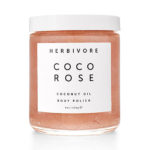
Monogamy gets a bad rap these days — people say it’s unnatural, impossible, outdated, stifling. And, yes, sometimes it is! Especially if your wedding anniversary now contains two digits. But anything worth fighting for will usually put you through the ringer, and monogamy is no exception. So before your partner’s bad habits drive you to the brink of insanity or you start taking your fantasies about your hot, young mail carrier a little too seriously, let us remind you of 10 good reasons to keep fighting that good fight by staying true to your one and only.
Note: Please also check out our companion article, Top 10 Reasons for Being – and Staying – Non-Monogamous, in which we state: “Both monogamy and non-monogamy have their pros and cons; in both posts, we’ve tried to focus on the pros. Neither is an attempt at telling you how to be, but rather an encouragement of who you are and how you choose to be.”
1. Sex can improve with time. Monogamy isn’t just about marrying off before everything starts to sag. Age can also mean that you get to know your body better, you become more comfortable in your own skin, you leave youthful insecurities behind, and your partner learns your body so well they could navigate you blindfolded. Given enough time, you and your partner can discover untold routes to your happy place. Why would you want to keep starting from scratch and having to break out the instruction manual all over again?
2. Cuddling comes naturally. There’s no awkward pre-sleep shuffle as you try to find the best spooning position that will be comfortable all night. After years together, your bodies just naturally fall into place around each other.
3. Peace of mind about STDs. Assuming both of you are true to your vows of sexual fidelity, then you don’t have to worry about contracting any (or any more) sexually transmitted infections.
4. Freedom from relentless beauty rituals. We’re not saying that once you make a sexual commitment to someone for the long haul, all thoughts of personal hygiene and grooming should go out the window. In fact, the longer you’ve been married, the nicer it is to regularly gussy yourself up. However, the ridiculous beauty standards people — especially women — are expected to live up to these days are automatically lowered when you spend day after day after day with one partner (thank goodness!).
5. Open relationships are for an elite few. It’s the rare, highly evolved person missing the jealousy gene who can successfully navigate the complicated waters of relationships with an open door policy. We’re not saying it can’t — or shouldn’t — be done, we’re just saying most of us are mere mortals, ones who thrive from the simple security of the pair bond.
6. Cheating is addictive. It’s kind of like breaking the seal: after you’ve gotten away with it once, it’s even harder not to do again. You convince yourself that the affair made you feel more alive than you’ve felt in years, that it didn’t change your feelings for your spouse, and that what they don’t know won’t hurt them. Lies! First of all, the more often you do it, the more likely you are to get caught, especially as you get cocky about your sneaking-around skills. But more importantly, the more you cheat, the less you will respect your partner (for example, you’ll start to look down on them for being so clueless), and the less you’ll respect your own marriage. Eventually, you’ll start to view all human connections with a cynical eye. And what kind of life is that?
7. Monogamy is good for the world. Being a trusty monogamist is good citizenship as well as good karma: If you’re faithful to your partner, then that’s one less person that someone else’s spouse can cheat with. Monogamists pay it forward!
8. Kink is for couples. Dirty sex — the kind that might involve role-playing or spanking or a little light bondage — is best enjoyed with someone you love and trust completely. Letting a first date tie you up? Not such a good idea. Plus, the more domestic and settled your day-to-day life is, the hotter it is to break out the ping pong paddle at night.
9. Monogamy is meaningful. “Loyalty.” “Trust.” “Fidelity.” “Honor.” “Respect.” These are all just words until your actions either give them power and importance or deflate them. Monogamy isn’t meaningful because the church or government says so and it isn’t meaningful because you wore a pouffy white dress/crisp tux and said you wanted it to be meaningful. Rather, monogamy’s meaning expands with each day that you and your partner commit to it. And that’s some pretty powerful stuff.
10. Scrabble. Enough said.

















I still love you, Em and Lo!
Look, people: We wrote a cover article for New York Magazine on the rise of non-monogamy and its benefits for many people:
http://nymag.com/lifestyle/sex/annual/2005/15063/
We went on Joe Scarborough’s show to defend people’s right to choose polyamorous relationships. We even went on freakin’ Oprah to discuss the topic in a positive and non-judgmental way — watch the vid yourself:
https://www.emandlo.com/about/
We are in full support of people who choose a polyamorous lifestyle. So a little less moral outrage, please. This just happens to be a lighthearted list for those people who WANT to be monogamous, who CHOOSE monogamy. And like any relationship (poly ones included), monogamous ones take work — this was only meant to be a little fun encouragement for those monogamy-choosing people, NOT at the expense of anyone in a successful non-monogamous situation.
In our defense: No where do we conflate consensual poly or open relationships with cheating — we treat them as separate entities. And as we’ve always said, if you can’t be monogamous because it’s too difficult for you, then either a) don’t get into a monogamous relationship to begin with, b) try to open your relationship up honestly, or c) end it. Cuddling after casual sex (again, casual sex not being a part of monogamy, but also not automatically equated with polyamorous relationships) can often be awkward or more-likely non-existent. The STD-point is definitely all about risk — but let’s not split hairs here; we’re not talking about getting cold sores from a peck from a platonic friend or your grandma (which by definition wouldn’t make it a sexually transmitted disease), nor do we think the there are many readers of this site in traditional relationships who are committed to monogamy AND who share dirty needles (no offense to the loved-up heroine junkies out there!). We happen to think that jealousy is an innate emotion, one that is designed to help with pair bonding (but of course, extremes of any emotion aren’t good); as anyone who’s watched “Sister Wives” recently can tell you, having a successful relationship that entails multiple partners does not mean you don’t ever feel jealousy (and yes, we know the diff between polygamy and polyamory, but both are types of non-monogamy). You can also believe that monogamy may not be a human’s natural state or inclination, but still choose monogamy for yourself for its benefits (just like the husband-and-wife team who wrote the book “The Myth of Monogamy” do!). And yes, some of these points are not exclusive to monogamous relationships, but again, the post wasn’t intended for poly enthusiasts.
We were, in fact, planning on penning a list next week called “The Top 10 Reasons for Being — and Staying — in an Open Relationship.” But since we freely admit we’re not in open relationships ourselves, we thought we’d invite thoughtful commenter to Dan to help us pen the list (despite taking issue with some of his points, as we’ve outlined above). Turns out he’s in a monogamous relationship too! But he’s agreed to contribute. So stay tuned!
Goodness!
I am a loyal as a labrador monogamist, and these reasons aren’t very strong on my list.
Best reason(s) for being and staying monogamous: you are both the monogamous type of person and you have amazing, satisfying sex together and aren’t looking to do anyone else.
Everything else is just a side benefit, not a list maker!
I agree with most of these, with the exception of 4 and 5.
I take very good care of myself, I make an effort to be very attractive, and I’ve been with the same man for well over 20 years. I think he deserves me at my best.
As for Poly relationships, I know a few who do quite well. No, it isn’t for everybody. But, a few people actually thrive on it. But, an Open Relationship needs to be decided on by both parties, and not as a solution to Crisis. Elite? Maybe. But, contrary to common belief, some actually do thrive.
The rest almost go without saying. As for 8, without Kink, I can’t imagine how boring spending one’s life with the same person would be. Experimentation and Variation are more then “Spice” they are the Meat of many long term HAPPY relationships.
People who know nothing of responsible non-monogamy are in no position to speculate on the practice. I’ve been poly for 5 years, with my husband of 10 years. Currently we share a residence with our two children and my boyfriend of 1.5 years.
Non-monogamy isn’t for everyone, but I think you are kidding yourself if you think that I don’t enjoy ALL of the items mentioned on your list. I have TWO people to dote on me when I am sick, help me with the children, play scrabble with, take me out to dinner and dancing. Not to mention that my husband is very vanilla, while I feel that kink is an important part of my sexuality (so no, monogamy does NOT equal kinky sex, despite three honest years of me trying my hardest to get him interested). My boyfriend likes a little slap and tickle in the bedroom, so I get the best of BOTH worlds and nobody has to feel resentful or deprived.
This list is ridiculous, and I certainly hope your readers see it for what it is.
I also find it highly offensive that you lumped non-monogamy in with cheating. I might be poly, but neither me, nor my men would EVER sleep with another married person without having first met and formed a friendship with the other spouse. That’s just how we roll, and we are all extremely careful regarding safe sex. More careful than I ever was during my “monogamous” years, that’s for sure.
– Shasta
http://healthland.time.com/2010/10/07/5-little-known-truths-about-american-sex-lives/slideshow/4/
Monogamy/exclusivity is a choice people make together, and to me all the article was doing was point out why it might be something to consider, for those to whom it sounds appealing with someone they’ve met.
“Jealousy gene” is an unfortunate phrasing, though to come back at it with such vague terms as “natural,” Dan, is weak sauce.
Quote: “One look at the divorce rate is all you need to know that the majority of us are not naturally monogamous.” Think wider, please. One could frame the same ‘divorce rate factoid’ in an entirely different way: one look at the divorce rate (in this country) is all you need to know that the majority of us would be better served by arranged marriages. Your immediate grasping for a “natural” reason for things neglects cultural comparisons, and thus avoids the trouble of having your preconceived notions challenged. (Hmm, that came off harsher than intended. My apologies! 🙂 )
What a disappointing list. I have been, for the most part, a serial monogamist, and am increasingly frustrated with the practice. I am not nor have I ever been a cheater, but the flip side of that is that, inside of the heartbreak of each failed relationship, I have found myself thinking, “Well, at least I can have sex with someone else now.”
I was hoping this list might cheer me up a bit, and show me monogamy as something more than I have come to view it as. Namely, as a trade-off: I get someone who will make me tea when I’m sick, listen to my troubles, support me, stick by me through the bad times as well as the good. In exchange, I must give sexual exclusivity. Thinking about monogamy that way somehow cheapens it, I think.
I often feel that the one thing stopping me from making a lifetime commitment is the thought of only being able to have one sexual partner for the rest of my life. But people who are truly happy and comfortable in nonmonogamous relationships seem few and far between, so I feel we’re stuck with the trade-off.
“Monogamy leaves a lot to be desired.”
“A man is as faithful as his options.”
Actually, we’re not talking about monogamy here (monogamy = precisely one partner over an entire lifetime) but, as practiced in our culture, serial sexual exclusivity. One look at the divorce rate is all you need to know that the majority of us are not naturally monogamous. Highly recommended: Sex At Dawn by Ryan and Jetha.
Addressing the points individually:
1. Sex *can* improve over time; for the majority it doesn’t. Exploring a new body is also hot. Too many people have boundaries around what they will and will not do that leave their partners frustrated in some significant way, often for a lifetime.
2. How long does it take to work out how to cuddle with each other? I’m guessing 2 minutes, tops. How does the next 50 years help?
3. (the numbering of the article is screwed up). Even if your partner is sexually faithful, some STI’s can be transmitted other ways (e.g. herpes: any skin-to-skin contact; HIV: sharing needles). Sexual exclusivity reduces the risk of infection dramatically; it doesn’t eliminate it.
4. Freedom from beauty rituals is available to anyone, any time. Those rituals are *not* required to catch a partner. They’re only required to catch partners who don’t think you’re beautiful without makeup/clothes/hair done to the 9’s. In fact, if you mask your true identity with the rituals, knowing you’re going to drop them as soon as you get comfortable, you’re being deceptive.
5. Jealousy isn’t a gene; it’s a learned fear and insecurity. Too many of us learn it. All of us can benefit from the self-development required to feel secure and confident in ourselves enough so that we’re no longer at risk for devastation if a partner has a fling with someone else.
6. Cheating is only addictive to those who are not naturally monogamous to begin with. And if you’re not naturally monogamous, trying to pretend that you are is a sad betrayal of yourself, and sets you up to devastate someone who trusted you to be who you pretended to be.
7. *If* you would have slept with that cheater that you are thwarting by staying faithful, that means you were attracted enough to him or her to want to do that. And if you remain exclusive, you have to find something else to do with that attraction. We’re taught to feel noble about that self-denial. I don’t happen to agree that it’s particularly noble.
8. If kink is important to you, you certainly don’t want to make a lifelong commitment of exclusivity, and *then* bring up the fact that your deepest sexual satisfaction comes from foot worship. Find someone who’s a kindred spirit, and *then* explore the possibility of making it long-term. Sheesh.
9. As was said so well by Leigh Olivia in the first comment, none of those lofty values is limited to sexually exclusive relationships.
10. I’ll give you Scrabble. It is impossible to enjoy Scrabble with anyone other than a partner with whom you have a mutually sexually exclusive relationship. Simply impossible. Strip Scrabble is *so* hot!
you. do. not. understand. the. difference. between. non-monogamy. and. cheating.
It’s really quite sad that you think you have the ethos to write about non-monogamy but assume that it is incongruous with trust, respect, fidelity, etc. Do *one* google search before you try to write an article about something next time.
I just love the fact that Scrabble is on this list. Seriously. Awesome.
@Leigh Olivia – I agree with you a couple could stay together in a sexually open but emotionally monogamous relationship and have most of the advantages on this list.
But –
1) I think if you have peace of mind about STDS in a sexually open relationship, you’re fooling yourself. More partners = more risk.
2) For most couples, the jealousy makes it hard to stay together. So they would lose the benefits of emotional monogamy.
3) People have a tendency to fall in love with the people they sleep with. Some people are willing to go beyond having sex with other people to having love affairs with them. People may be able to love multiple partners, but I don’t think you can have the same kind of one-on-one bond this way as with a long-term emotionally monogamous relationship. There’s something about being with just one person that lets you go in deeper.
4) If what you want is a long-term love affair with one special person, opening up may risk losing that. Back in the 1970s, one study found that the divorce rate for open marriages was a lot higher than the norm. That might be because some couples were trying to save their marriage by opening it up, but if they were, it didn’t work for most of them.
I’m still not sold.
Great article! I’m glad someone else is in favor of monogamy too!
“Open Relationships are for an elite few” Well…I couldn’t speak to that, exactly (I don’t feel very “elite” most days). I’m not saying they’re for everyone, but when they do work, all of those “reasons for being monogamous” apply to healthy committed relationships that *aren’t* monogamous too (yeah, even the bit about STI’s, thankyouverymuch) and I know it’s not your job to make me and my poly cohorts feel good, but there really isn’t any reason to suggest that we’re not in on these kinds of benefits with our committed partners as well. It seems to me that’s it not monogamy, but commitment, perserverance, respect and trust that bring most of those benefits about, not exclusivity. Reason number nine comes the closest to hitting it–if you commit to something, especially something that isn’t easy (and please don’t take this as disrespect for hardworking mono folk out there–I do my relationships *different* not necessarily *better*), be it sexual monogamy, celebrating weekly anniversaries, wearing blue polo shirts every time your partner has a bad day it work…vowing to do something and living up to it is a powerful way to build connection. But that’s not necessarily anything inherent about monogamy itself.